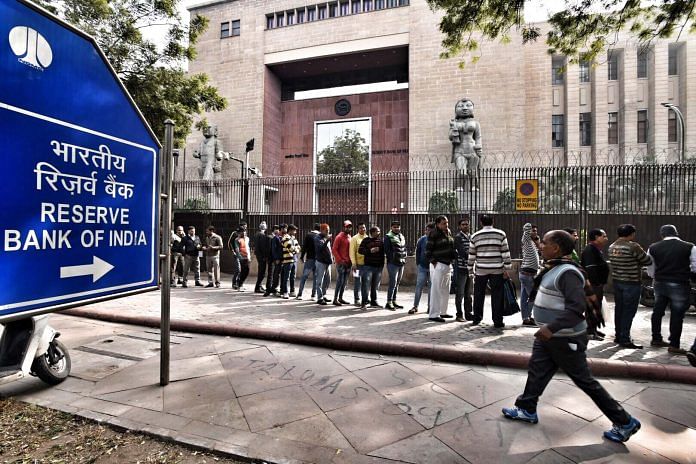Opinion, however, is split on whether the central bank will tighten its stance in the later part of the year.
New Delhi: The Reserve Bank of India (RBI) is likely to keep the benchmark lending rates unchanged in its first bi-monthly monetary policy review for financial year 2018-19 due this Thursday.
The repo rate, the rate at which the RBI lends to banks, currently stands at 6 per cent, and the reverse repo rate, at which banks lend to the RBI, at 5.75 per cent.
However, opinion is split on whether the central bank will tighten its stance in the later part of the year, with many suggesting the possibility of a rate increase early in 2019.
At 4.4 per cent, the retail inflation for February has fallen short of the RBI’s projection of 5.1 per cent for the last quarter of FY18, but rising oil prices, along with the government’s fiscal slippages ahead of the election year, will keep the RBI on its toes in the monetary policy review, analysts said.
Additionally, the increase in the minimum support prices (MSPs) to 1.5 times the production costs incurred by farmers and seventh pay commission payouts may pose an upside risk to inflation in the coming days.
According to the RBI’s own projections, headline inflation, a measure of the total inflation within an economy, will be in the range of 5.1 to 5.6 per cent in the first half of FY19, over its medium-term target of four per cent. In the second half of the fiscal, headline inflation will be in the range of 4.5 to 4.6 per cent on the back of a softer food inflation forecast, and predictions of a normal monsoon.
At the February monetary policy meeting, the RBI had kept policy rates unchanged, emphasising the need to nurture the nascent recovery made by the economy after the twin shocks of demonetisation and GST implementation.
The central bank noted that economic recovery was on a stable path, but said upside risks to inflation persisted, driven by an increase in the house rent allowance (HRA) in some states, rising crude oil prices, and overspending by the central government.
The government has already overshot its revised fiscal deficit target by 120 per cent in the April to February period for FY18. At the end of February, India’s fiscal deficit soared to Rs 7.15 lakh crore.
Polls conducted
A poll of 61 economists conducted by Reuters between 23 March and 28 March yielded a consensus on expectations that the RBI would keep monetary policy steady at its April meeting, with the majority predicting a shift to a hawkish stance by the end of this year.
An Economic Times poll of 23 economists suggested the RBI was headed into an extended pause, while expressing concerns over rising oil prices and food inflation.
Another poll, by Business Standard, involving 15 economists pointed at expectations that the monetary policy committee would keep repo rates unchanged, with a “narrow chance” of rate cuts in the future.
Fifteen economists polled by Mint suggested that the RBI would keep key policy rates unchanged amid easing inflation and gradual recovery in growth. However, the RBI will keep a close eye on increased risks to inflation because of rising oil prices and higher MSPs for farmers.



